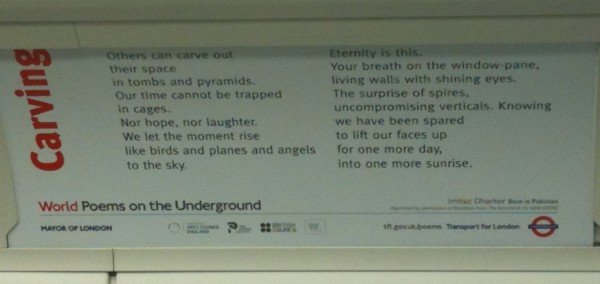I am riding on a limited express, one of the crack trains of the nation.
Hurtling across the prairie into blue haze and dark air go fifteen all-steel coaches holding a thousand people.
(All the coaches shall be scrap and rust and all the men and women laughing in the diners and sleepers shall pass to ashes.)
I ask a man in the smoker where he is going and he answers: “Omaha.”
From Chicago Poems (1916)

